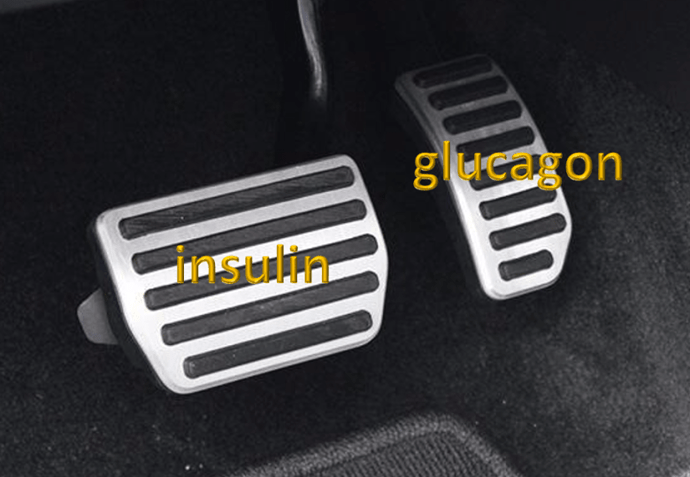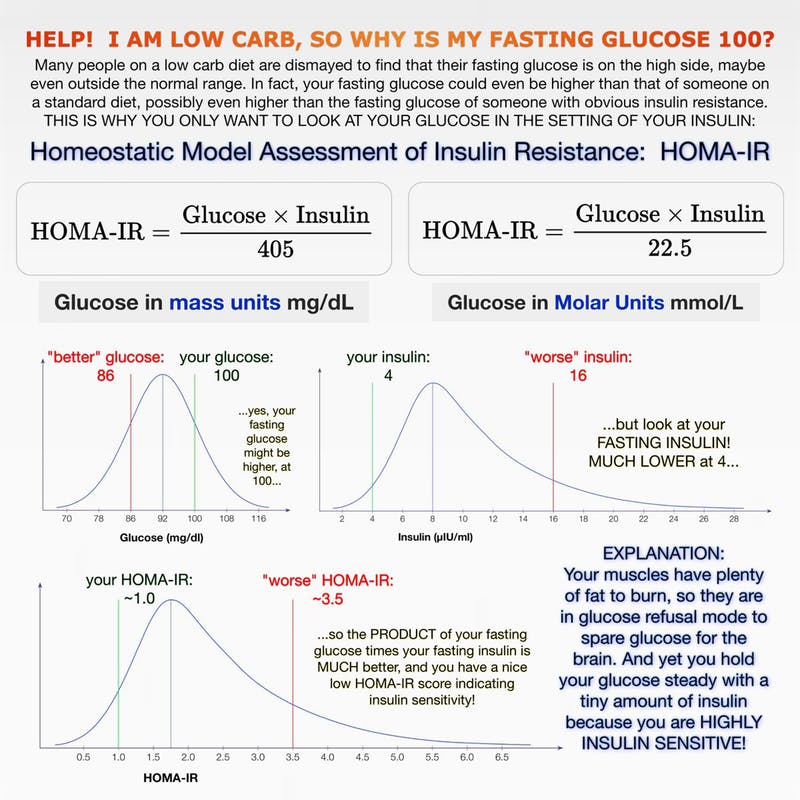OK, need some clarification here. Why can folks on pure carnivore diets consume what appears to be “unlimited” protein, yet Keto or LCHF folks are limited to moderate protein due to gluconeogenesis? Doesn’t the carnivore folks experience GNG?
Protein consumption. Keto vs Zero Carb
Because people are easily misled and there’s no settled science. Protein is a boogeyman right now, it’s trendy to hate on it. It’s pretty hard to overeat protein, and even if you do there’s ways the body deals with it.
I’m male 5’8" 160lbs currently (lost 20 pounds in 6 weeks this year on a cut) and I get upwards of 300-400g on some days without any upward change in bodyfat. Many, many others report the same.
Many of us have actually stopped limiting protein and don’t give GNG a second thought.
My n=1 is that the common guidance on protein intake in LCHF is too low. Following Dr. Westman, my protein macros were well in excess of the recommended macros, even while staying entirely within his Page 4 guidelines. Incidentally, that’s when I found my weight management and overall health optimal.
I’ll be curious to see how this thread goes.
You don’t just eat protein… that’s simply not possible… rib eye steak is 21g fat 17g protein per 100g
My protein is way too high for keto macro dogma, yet I am solidly in ketosis.
I think people miss the fact that gluconeogenesis is demand driven.
Lean muscle mass is just as important for longevity and quality of life as is metabolic health. I found this podcast to be very informative. #201: Gabrielle Lyon, DO- Protein, Leucine, mTOR and Muscle Growth Science, Strategies w/ Gabrielle Lyon, DO
Also consider that muscle tissue is our glucose buffer. If you shortchange muscle development and maintenance by fearing protein you limit that buffer.
Ketosis and GNG are partners. You don’t get much of either without some of the other. No one can eat unlimited protein. We each have limits to how much nitrogen we can excrete and exceeding them is harmful and taken to an extreme is fatal. But in healthy people with good function of liver and kidneys our protein tolerance is high and difficult to exceed as feelings of satiety and eventually nausea should set in long before one exceeds their protein tolerance. In extreme circumstances where very lean meat is the only source of food for weeks or months starvation induced hunger has driven people to exceed their protein tolerance.
Another consideration is for people with insulin resistance and very high insulin inhibiting access to endogenous fat. Protein has half the insulin response of carbohydrate so for each additional gram of carbohydrate eliminated one can add 2 grams of protein and have a similar insulin response. If one is eating a fatty meat the protein content can be less than 20% of the meat by weight and thus for each gram of carbohydrate eliminated one can add 10+ grams of meat. The 20 gram limit on carbs was chosen such that very hyperinsulinemic individuals can still get insulin sufficiently low to get into lipolysis/ketosis. Most however can go higher. 40-50 g / day carbs is typically ok for those not diabetic or pre-diabetic. There are athletic individuals who have found they can stay in ketosis at 100 g carbs / day. Instead of that 100 g of carbs they could instead eat an extra kg of ribeye for the same impact on insulin. When one considers that the insulin response to protein is also accompanied by glucagon which to some degree counters the effects of insulin one can probably push intake of protein further perhaps enough to give the impression it is “unlimited”.
This is also a very important distinction - I tend to forget, myself. I don’t think I’m as resistant to insulin as I used to be, and doubt I was as resistant as many of the folk here, thankfully. But I believe it comes into play here for sure.
@FGH There used to be an assumption that any protein over immediate requirements would automatically be converted into glucose, and it is still percolating through people’s thinking, even though it has now been shown that the liver only makes glucose out of protein when there’s need.
The other thing some experts may be thinking of is that eating protein triggers the secretion of insulin, albeit at half the rate carbohydrate does. But this insulinogenic effect has now been shown to be context-dependent. In a high-carbohydrate setting, the spike in insulin is quite high, which is undesirable. But in a low-carbohydrate setting, any increase in insulin secretion is matched by an increase in glucagon secretion, so the insulin/glucagon ratio, which is really the controlling factor, doesn’t change and remains low. A low insulin/glucagon ratio is what permits/causes gluconeogenesis and ketogenesis to continue, because if they didn’t continue, we’d keel over and die (literally).
I think consumption may drive it, beyond a certain high point of protein intake. Like, if you’re doing glycolytic workouts and eating as much as I would on a given day…you might make more. But it’s not the same as eating a doughnut by any stretch of the imagination.
Fortunately this is easy to measure. If I go nuts on whey protein concentrate I can drive my blood sugar back up into the pre-diabetic range suggesting that for me GNG can to some extent be supply driven or protein catabolism is suppressing demand for glucose while GNG is not reduced sufficiently resulting in higher blood sugar. Curiously though I don’t get “kicked” out of ketosis. Ketones are also easily measured and while protein intake can prevent me from achieving the high ketone levels of fasting I’ve never managed to drop my ketones very low through protein alone.
Unlikely that anyone eating a true carnivore diet would be taking whey protein concentrate though?
I’d suggest it would be comparable to someone on a true ketogenic diet taking exogenous ketones. It’s not recommended but stuff happens when people try to maximize a good thing without consideration of the possibility of going too far.
If you’re curious about protein and low-carb regimen, Dr. Ben Bikman is your doctor, and researcher friend. He enjoys challenging anti-protein bias in the medical community.
I have yet to leave a presentation of his, thinking, “my head is spinning. I better re-listen to all that he just said.”
First, thanks to all of you for the responses. That’s what makes this site awesome.
The reason for my original post is I have been doing keto for over a year with no progress on 1) weight loss and 2) improving my blood markers. My fasting BG levels are all over the place and consistently over 100. I’m convinced the reason for zero weight loss is because my my body is so f’d-up with insulin resistance. So my focus now has shifted to going carnivore until my blood sugars stabilize toward more normal levels. Then I’ll gradually add back minor carbs to get back to keto.
I want to get to the point where I can tell my doc to shove his meds up his a…
Seriously, can you switch doctors? Income deprivation is a solid change agent. My GP has come around, thanks to my success.
Secondly, I just happened across this direct answer to your question. You’ll find it here, I’ve set the start point to where he talks about your question:
From the YT transcript:
And then the protein issue I think dr. Ben Bikman has the most excellent YouTube video about this. He gave a lecture at low carb somewhere and basically if you’re eating a low-carb diet you can’t eat enough protein to initiate gluconeogenesis to any meaningful degree. Gluconeogenesis is not a push mechanism it’s a need it’s a demand mechanism, right? And so if your body needs glucose your liver can crank up gluconeogenesis in seconds and give your red blood cells and all the other cells all the glucose they need but you can’t eat enough protein on a low-carb diet to push your liver in them to making glucose it just doesn’t work that way biochemically and so many people have either never had the by the physiology and biochemistry lectures or they forgotten them it doesn’t work that way it’s not a push mechanism it’s it’s like you can you can lead a donkey but you can’t push a donkey it doesn’t work that way and so that’s what I don’t think you can eat enough protein on carnivore or low carb keto to initiate any kind of damaging gluconeogenesis I just don’t think it works that way.
Thought this was also an easy to understand explanation besides the ones given above:
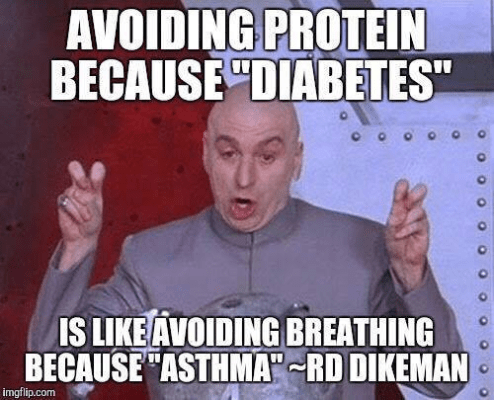
Things are different if you have diabetes.
Insulin resistance means that between our fatty liver and insulin resistant adipose tissue, things don’t work as smoothly.
While your blood sugar may rise or fall in response to protein, needs to rise a lot more while you metabolise the protein to build muscle and repair your organs.
Unfortunately, people who are insulin resistant may struggle to build muscle effectively due to insulin resistance. Then the higher levels of insulin may drive them to store more fat in the process.[12] Becoming insulin sensitive is important!
The chart below shows the difference in the blood glucose and insulin response to protein in a group of people who are metabolically healthy (white lines) versus people who have type 2 diabetes (yellow lines).[13]
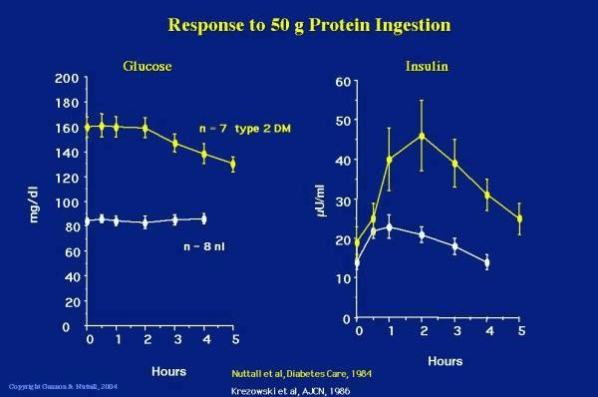
People with diabetes may see their glucose levels drop from a high level after a large protein meal and will have a much greater insulin response due to their insulin resistance. People with more advanced diabetes (i.e. beta cell burn out or Type 1 diabetes) may even see their blood sugar rise. Their ability to produce insulin to metabolise the protein and keep glycogen in storage cannot keep up with the demand.
Drawing on the brake/accelerator analogy, it’s not necessarily protein turning into glucose in the blood stream via gluconeogenesis, but rather the glucagon kicking in and a sluggish insulin response that isn’t able to balance out the glucagon response to keep the glycogen locked away in the liver.
Healthy people will be able to balance the opposing hormonal forces of the insulin (brake) and the glucagon (accelerator), but if we are insulin resistant and/or don’t have a properly functioning pancreas (brake), we won’t be able to produce as much insulin to balance the glucagon response.
Someone who is insulin resistant has normally functioning accelerator pedal (glucagon stimulating glucose release in the blood) but a faulty brake (insulin).
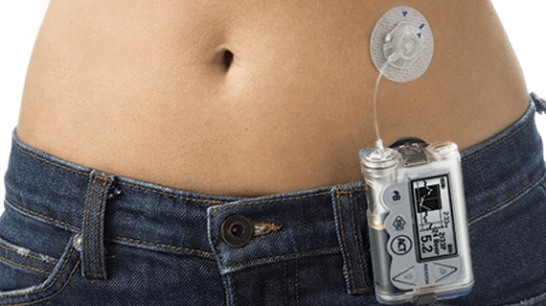
More insulin or less protein?
So, what is the problem here?
Why are Monica’s blood sugars rising?
Is it too much protein?
Or not enough insulin?
I think the best way to explain the rise in blood sugars is that there is not enough insulin to keep the glycogen locked away in her liver and metabolise the protein to build muscle and repair her organs at the same time.
Meanwhile, the glycogen pedal is pushed down as it normally would be in response to a protein which is driving the glucose up in her bloodstream.
There is just not enough insulin in the gas tank (pancreas) to do everything that needs to be done.
So, if Monica had a choice, should she:
- A. Keep her blood sugars stable and stop metabolising protein to repair her muscles and organs,
- B. Metabolise protein to build her muscles and repair her organs while letting her blood sugars drift up, or
- C. Both of the above.
Personally, I think the correct answer is C.
While it’s probably not wise to go hog-wild with protein supplements and powders if you have diabetes, swinging to the other extreme to target minimal protein levels is a sure way to end up with a poor nutritional outcome.
According to Simpson and Raubenheimer in Obesity: the protein leverage hypothesis (2005), people with diabetes may actually need to eat more protein to ensure that they have adequate amounts to build lean muscle mass given that higher levels of gluconeogenesis may cause more protein loss to glucose due to their insulin resistance.
”… One source of protein loss is hepatic gluconeogenesis, whereby amino acids are used to produce glucose. This is inhibited by insulin, as is the breakdown of muscle proteins to release amino acids, and therefore occurs mainly during periods of fasting (or low carb).
However, inhibition of gluconeogenesis and protein catabolism is impaired when insulin release is abnormal, insulin resistance occurs, or when circulating levels of free fatty acids in the blood are high. These are interdependent conditions that are associated with overweight and obesity, and are especially pronounced in type 2 diabetes (12,34).
It might be predicted that the result of higher rates of hepatic gluconeogenesis will be an INCREASED requirement for protein in the diet. …” …More
Related:
Lower calorie diet more Ketogenic?
Virta Health - How Much Protein on Keto
Question about hashimoto's hypothyroidism and prolonged fasting
Fructose: how much if any?
Protein Myths: Continued
Protein Myths: Continued

